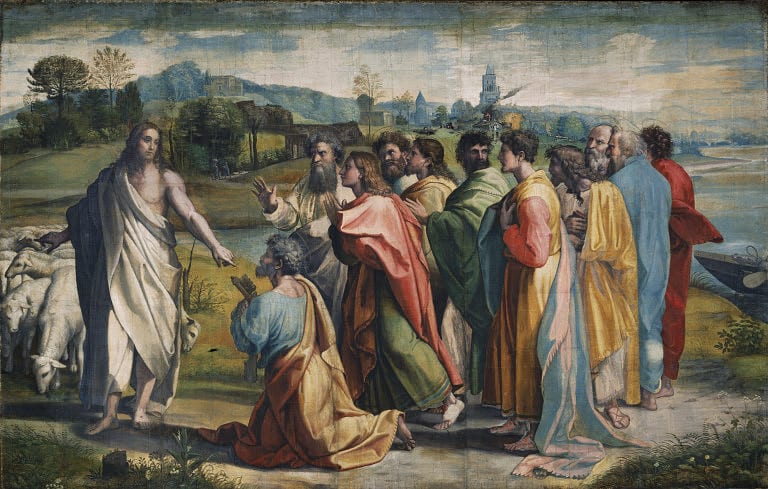
By David El-Hachem
In the Maronite liturgical calendar, on the 5th Sunday of the Glorious Resurrection, we read the final chapter of the final Gospel.
Christ appears to the apostles on the beach, while they are fishing. The disciples had fallen back into their old lives.
Simon Peter—who Jesus made a “fisher of men”—was among them. His threefold denial of Christ weighed heavily upon his heart, and he suffered from immense guilt for his failure to die for Christ as he promised he would (Mt 26:35).
When Christ came and broke bread with the apostles on the beach, he took Peter away and asked his disciple three times if he loves him. To which Peter replies three times, “Yes, Lord; you know that I love you.”
This threefold protestation of love was Christ giving Peter the chance to repair his failure in the triple denial.
As St Augustine teaches, “Fear had thrice denied, love thrice confessed.” What more did St Peter have to fear? Now that Christ had conquered death, death could no longer separate us from the love of Christ our God (Rom 8:38).
Hidden in the Greek, we find the profound meaning of this verse. Christ asks Peter the first time: “Simon son of John, do you love me (ἀγαπᾷς με, agapas me) more than these?”
Agape refers to the divine love, a perfect love, the strongest form of unconditional love that only God can give to us.
Peter responds, “Yes, Lord; you know that I (φιλῶ σε, philō se) love you”, responding with philia, a dear and sincere love from friendship and duty.
Once again, Christ asks Peter, “agape me”, to which Peter replies “philō se”.
But the third time Jesus asks Peter, he does not use agape again. He asks Peter: “Simon son of John, do you love me (philō se)?”
Peter is grieved, not because Christ asks him a third time, but because Peter knows he cannot return the divine love that God gives to us.
Following each proclamation of love from St Peter, Christ answers “Feed my lambs,” “Tend my sheep,” and the third time, “Feed my sheep.”
That is to say, Christ commissions Peter to guide, rule and govern. While Peter cannot return agape, St John Chrysostom explains, “that which most of all attracts the divine love is care and love for our neighbour.”
Our Lord remembers not Peter’s failure. Instead he appoints Peter as the chief shepherd of the entire church.
In this way he tells Peter that if he truly loves him, he will lay down his life for the sheep, just as Christ laid down his life for the salvation of all.
Undoubtedly as Christians, we will fall. We will be afflicted, suffer for Christ’s sake, and will struggle.
But God waits for us with agape, a love so strong and unconditional that none of us could hope to return. Only Christ can give us the love that is perfect, which refines and purifies our own love and virtue in our hearts.
But this verse also teaches us that no matter how weak our love is for Christ, he will come and meet us and take us as we are. He alone will guide us through his love. He alone will lead us on the path that leads to life.
All fear in the Christian life, “ought to be conquered by the strength of love for him,” as St Augustine says. Our Christian life should reflect the Christ-like love of our neighbour, and all of us should be willing to give up everything for Christ.
Like Peter, Christ calls out to us, his sheep, through the divine love of God—and the words are simple: “Follow me”.
David El-Hachem is the UTS Representative for UniMaronite, an intervarsity movement that helps tertiary students grow in their Maronite faith.
